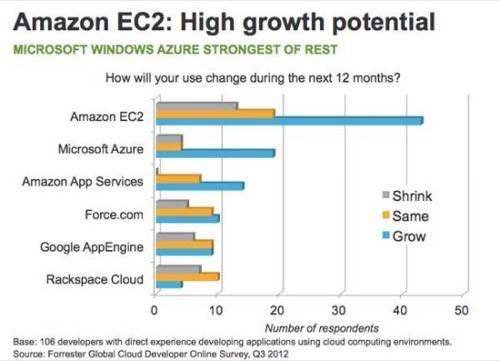
Microsoft may be a distant runner-up to iOS and Android in the smartphone race, and still lags Amazon EC2 in the cloud wars, but executives from the Windows Phone and Azure divisions aren’t hurting for respect. In the past week, senior Microsoft executives have joined disruptive challengers in the mobile and cloud markets, suggesting that Microsoft’s brainpower isn’t lacking, even if its market share is.
The first executive departure was Charlie Kindel, the former Microsoft executive who managed developer outreach for Windows Phone, who actually left Microsoft nearly two years ago but just now found his way to Amazon. While it’s still anyone’s guess as to what Kindel will be doing at Amazon – given his past role with Windows Phone, some are mooting the possibility that he will be helping build out an Amazon phone – this is becoming a bit of a habit for Windows Phone executives to leave for Amazon.
After all, just last year Brandon Watson, also from the Windows Phone developer outreach team, left for Amazon. In his case, Watson joined Amazon to help on the Kindle cross-platform team.
Nor is it just the Windows Phone team that has been leaking.
Today Red Hat announced that it had snagged Radhesh Balakrishnan, Microsoft’s Azure chief for Asia-Pacific, to run its virtualization efforts, including OpenShift, Red Hat’s open-source PaaS offering. If Red Hat were to borrow from any competitor to steal a march on VMware in the virtualization market, or Amazon in the cloud market, Microsoft was a great place to look.
After all, Microsoft has been cutting into VMware’s virtualization market share for years, and Azure has become a solid #2 to Amazon, as a recent Forrester survey indicates:

One way to look at this is that Microsoft is hemorrhaging talent and must be a sinking ship. But I think this would be an incorrect reading. After all, though Microsoft is late to both the cloud and mobile parties, it’s making progress in both, and continues to own the affections of CIOs.
No, I think the better interpretation is that for all Microsoft’s execution issues, it continues to have a bevy of super-smart employees. Amazon and Red Hat certainly seem to think so.
And for every Microsoft executive that leaves, there are many more who are choosing to stay. If anything, these departures say little about Microsoft’s fortunes and instead simply indicate that Amazon and Red Hat may offer exciting options of their own. While it’s tempting to assume that executive departures are a clear sign of a company’s struggles, reading the tea leaves in this way would put Apple, Facebook and Google, among others, in serious jeopardy.
Most people would love to have that kind of “jeopardy.”
Image courtesy of Shutterstock.

















